Redefining Reality: The Magic and Marvels of Science-Fiction
Science fiction, often abbreviated as sci-fi, is a genre that explores imaginative and speculative concepts that are based on scientific principles, discoveries, and future projections. From its early roots in classical literature to its ubiquitous influence in modern popular culture, science fiction continues to intrigue audiences of all ages.
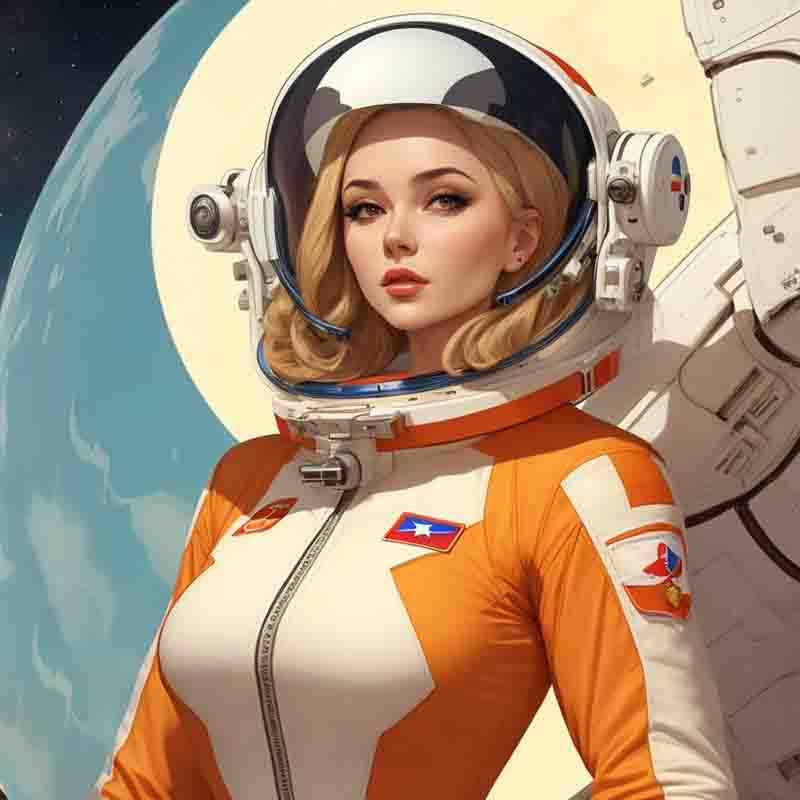
Science Fiction serves as a literary and cinematic medium through which creators explore the limitless possibilities of the universe, both within and beyond the constraints of known science.
Science fiction is a lens through which we contemplate the consequences of scientific progress, the potential of emerging technologies, and the profound impact of these advancements on society, culture, zeitgeist, and the human condition.
It thrives on envisioning alternative futures, parallel dimensions, and extraterrestrial civilizations, prompting us to question the fundamental nature of reality and our place within it.
Within the discipline of science fiction diverse subgenres emerge, ranging from hard science fiction which adheres closely to scientific principles, to steampunk and space opera which explore epic space adventures with grandiose themes.
Cyberpunk explores the fusion of technology and society, often in dystopian settings, while time travel narratives unravel the intricacies of temporal manipulation.
Through these varied lenses, science fiction serves as a powerful tool for exploring not only the outer reaches of the cosmos but also the depths of the human psyche.
Science fiction frequently acts as a mirror reflecting contemporary concerns, fears, and aspirations.
It allows us to grapple with ethical dilemmas, societal transformations, and the unintended consequences of scientific exploration in a speculative context.
Science fiction and the metaverse share a profound and intricate connection, one that has shaped our understanding of both futuristic technology and the evolving nature of human interaction.
By extrapolating current trends and pushing them to their logical extremes, science fiction sparks conversations about the ethical responsibilities accompanying technological innovation and the potential ramifications of our actions on a global scale.
Science fiction serves as a creative playground for authors, filmmakers, and enthusiasts to contemplate the potential consequences of scientific progress, ponder the mysteries of the universe, and delve into the profound complexities of human existence within the context of evolving technologies and uncharted frontiers.
Science Fiction Timeline
Science fiction is more than just a genre; it is a dynamic exploration of the intersection between imagination and knowledge, a playground for the curious mind to navigate the uncharted territories of the future, and a catalyst for philosophical reflection on the ever-evolving relationship between humanity and the cosmos.
| Time Period | Historical Events |
|---|---|
| Early Antiquity | Mythical tales featuring fantastical elements. |
| 2nd Century AD | True History" by Lucian of Samosata, considered one of the earliest works with elements resembling science fiction. |
| 17th Century | Johannes Kepler's "Somnium" (The Dream), an early work of speculative fiction involving a trip to the Moon. |
| 18th Century | Voltaire's "Micromégas" explores themes of extraterrestrial life and cosmic perspective. |
| 1818 | Mary Shelley's "Frankenstein" (1818) introduces the concept of creating life through science. |
| 1870 | Jules Verne's novels like "Twenty Thousand Leagues Under the Sea" and "Journey to the Center of the Earth" (1864) pioneer adventure and speculative fiction. |
| 1898 | H.G. Wells' "The War of the Worlds" and "The Time Machine" (1895) contribute to the development of science fiction. |
| 1926 | Pulp magazines like "Amazing Stories" popularize science fiction. |
| 1930s-1940s | Golden Age of Science Fiction (1930s-1940s) sees the rise of influential writers like Isaac Asimov, Arthur C. Clarke, and Robert A. Heinlein. |
| 1952 | John W. Campbell's editorship at Astounding Science Fiction (later Analog) influences the genre's direction. |
| 1966 | The original Star Trek series, aired from 1966 to 1969. |
| 1960s-1970s | Iconic works like Ursula K. Le Guin's "The Left Hand of Darkness" (1969) and Philip K. Dick's "Do Androids Dream of Electric Sheep?" (1968) are published. |
| 1977 | Star Wars presented a universe full of iconic characters, including Luke Skywalker. |
| 1984 | Cyberpunk emerges with works like William Gibson's "Neuromancer" |
| 1985 | Dystopian themes become prominent with works like Margaret Atwood's "The Handmaid's Tale" |
| 21st Century | Advancements in technology shape new subgenres like biopunk, nanopunk, and transhumanism. |
This timeline provides a snapshot of key developments in the history of science fiction, showcasing its evolution from early myths to the diverse and dynamic genre it is today
A Deep Dive into the World of Science-Fiction
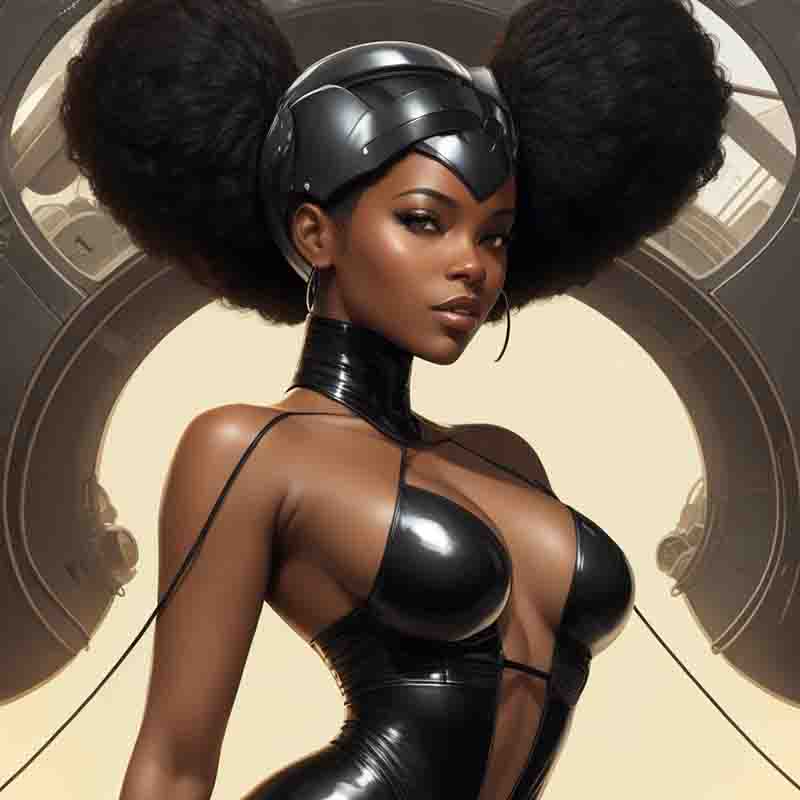
It was in the early 20th century that the term "science fiction" gained prominence. Hugo Gernsback's "Amazing Stories," first published in 1926, became a pioneering magazine that showcased the genre's potential and garnered a dedicated readership.
Key Characteristics of Science Fiction
At its core, science fiction possesses several key characteristics that distinguish it from other genres.
The genre often unfolds in futuristic settings, exploring the possibilities of advanced technologies, space exploration, and alternative realities.
It thrives on speculative and imaginative storytelling, delving into "what if" scenarios that challenge the boundaries of scientific knowledge.
Scientific and technological concepts form a crucial foundation, with authors and creators incorporating real or hypothetical scientific principles to lend authenticity to their narratives.
Science fiction serves as a platform for societal and ethical reflections, using futuristic scenarios to comment on contemporary issues and question the impact of scientific advancements on humanity.
Influential Science Fiction Authors
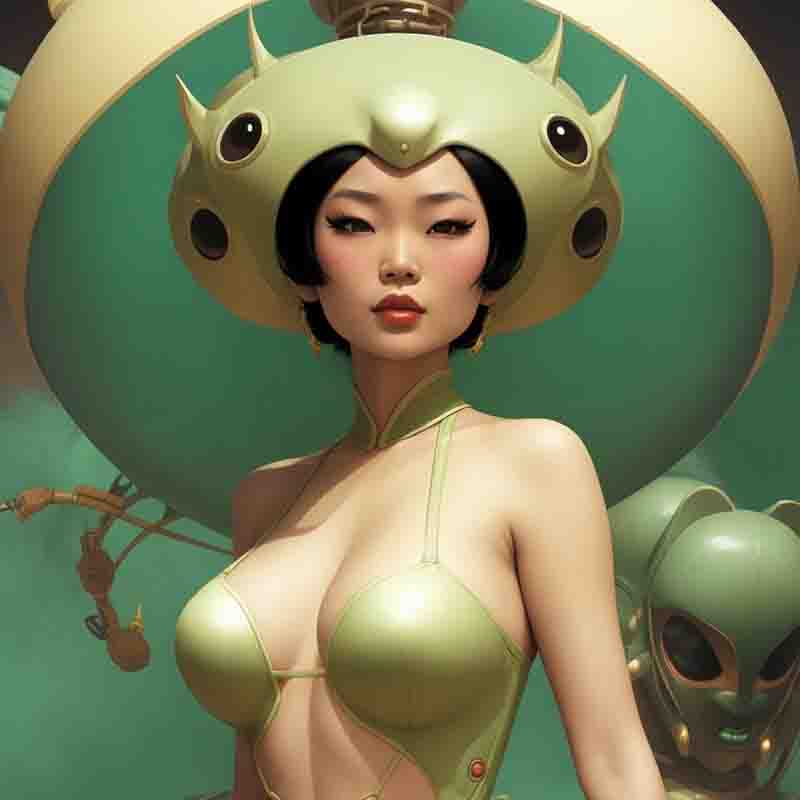
As we journey through the cosmos of science fiction, one thing is certain: the exploration is endless, and the wonders yet to be discovered are as boundless as the human imagination.
Several authors have significantly shaped the landscape of science fiction literature.
Isaac Asimov, a prolific writer and biochemist, made substantial contributions with his Robot Series and Foundation Series.
Asimov's exploration of robotics and artificial intelligence not only entertained but also sparked discussions on the ethical implications of creating intelligent machines.
Arthur C. Clarke, with his magnum opus "2001: A Space Odyssey," delved into the mysteries of space, extraterrestrial life, and the evolution of humanity.
Philip K. Dick, known for mind-bending concepts, explored the nature of reality in works like "Do Androids Dream of Electric Sheep?" which later inspired the iconic film "Blade Runner."
Sub-Genres within Science Fiction
The broad field of science fiction encompasses various sub-genres, each offering a unique lens through which to explore speculative narratives.
Space opera, epitomized by epic interstellar adventures, has given us cultural phenomena like Star Wars and Star Trek.
Cyberpunk, characterized by high-tech, low-life aesthetics, explores dystopian futures where technology and society collide.
Dystopian science fiction, as seen in George Orwell's "1984" and Aldous Huxley's "Brave New World," reflects on societal issues, offering cautionary tales of potential futures.
On the flip side, utopian science fiction presents positive visions of the future, often advocating for societal harmony and progress.
The Cultural Impact of Science Fiction
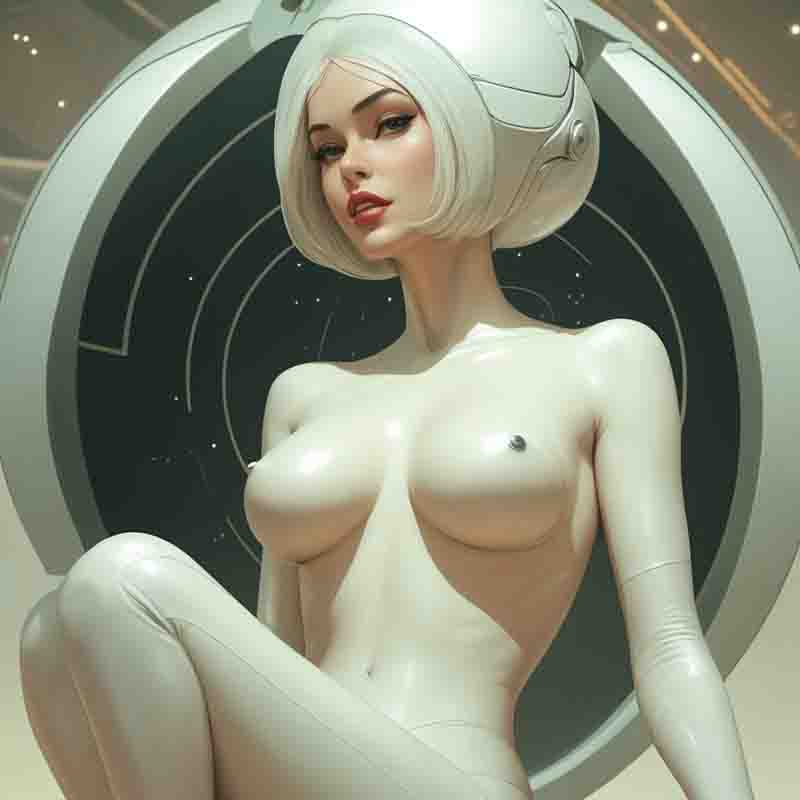
Science fiction often portrays space exploration as an inspiring and aspirational endeavor. It presents a vision of humanity reaching beyond its current boundaries to explore the unknown.
The genre of science fiction has successfully influenced culture, technology, social perspectives and indeed general education.
This influence can be seen in the prototypes that have developed into actual innovations.
Devices like communicators in Star Trek paved the way for modern smartphones, illustrating the genre's predictive power.
Beyond technology, science fiction serves as a mirror to society, addressing political and social issues through allegorical narratives.
The genre encourages scientific curiosity and critical thinking, inspiring future generations to explore the boundaries of human knowledge.
Science fiction literature has played a starring role in promoting inclusion and diversity, with more recent works breaking stereotypes and presenting a wide range of viewpoints.
Science Fiction in Film and Television
The transition of science fiction from page to screen has been a transformative journey, with adaptations of classic works and the creation of pioneering films and series.
Classic adaptations include Fritz Lang's "Metropolis," a groundbreaking film that set the stage for futuristic cityscapes.
"The Day the Earth Stood Still" explored themes of first contact with extraterrestrial beings, leaving an enduring impact on the genre.
In contemporary times, science fiction series like Black Mirror have become synonymous with exploring technological anxieties, while The Expanse offers a realistic portrayal of space exploration.
The aesthetics of Blade Runner, inspired by Philip K. Dick's work, have become iconic in the realm of cyberpunk.
The Role of Science Fiction in Literature
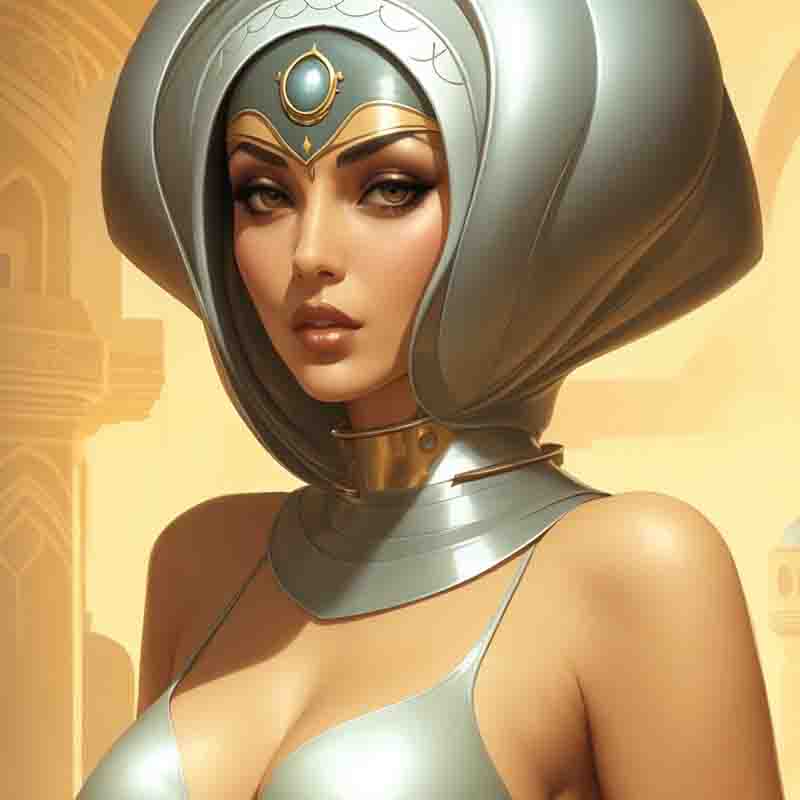
Sci-fi works frequently showcase advanced technologies, from faster-than-light travel to futuristic spacecraft. These depictions contribute to the collective imagination of what future space exploration could look like.
Science fiction literature goes beyond escapism, offering profound explorations of human nature, the impact of technological progress, and societal structures.
Isaac Asimov's Robot Series, for instance, delves into questions of identity, morality, and the existential dilemmas surrounding artificial intelligence.
The genre has also served as a source of inspiration for real-world innovations, with science fiction predictions often aligning with technological advancements.
Biotechnological advancements, as explored in science fiction literature, are now becoming a reality, with implications for medicine, genetics, and more.
Furthermore, science fiction literature embraces genre diversity and inclusivity, with emerging voices providing fresh perspectives and breaking away from traditional stereotypes.
The Future of Science Fiction
The future of science fiction holds exciting possibilities, with evolving themes, technological advances in storytelling, and a more globalized representation of the genre.
Themes within science fiction are likely to evolve, with climate fiction (Cli-Fi) gaining prominence as a sub-genre that addresses environmental concerns.
Technological advances in storytelling, including virtual reality and interactive narratives, offer immersive experiences for audiences.
Additionally, the genre's globalization is bringing in diverse cultural influences and non-Western perspectives, enriching the narrative landscape.
As science fiction continues to intersect with other genres and hybrid narratives emerge, the genre is poised to remain a dynamic and influential force in literature and entertainment.
Sci-Fi Keywords
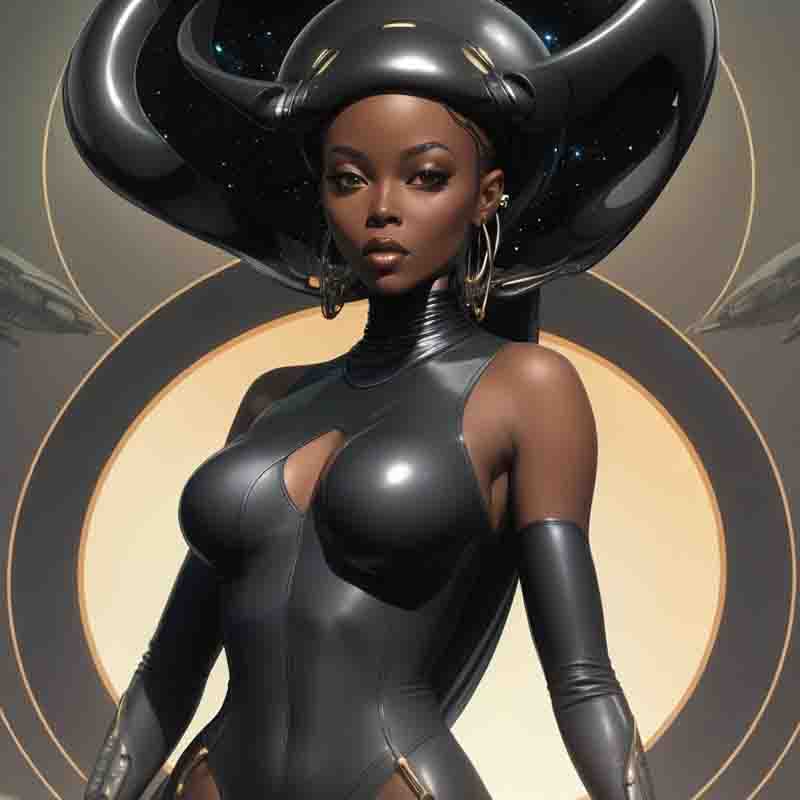
Sci-fi features encounters with intelligent extraterrestrial life forms. These encounters range from friendly alliances to conflicts, shaping perceptions of potential extraterrestrial contact.
Science fiction is a genre that dares to dream beyond the constraints of reality.
It thrives on speculative and futuristic concepts, often rooted in scientific principles but extending into the realm of the extraordinary.
It challenges our understanding of the world and invites us to contemplate what could be.
-
Speculative fiction: A genre encompassing narratives that explore alternative scenarios, often rooted in scientific or technological possibilities but extending beyond the bounds of reality.
-
Futuristic concepts: Ideas and themes that envision the future, incorporating advanced technologies, societal changes, and scientific advancements yet to be realized.
-
Imaginative exploration: The act of delving into creative and inventive realms, pushing the boundaries of conventional thought to envision novel ideas and scenarios.
-
Scientific progress: The advancement of knowledge and understanding in various scientific fields, often serving as a foundation for speculative elements in science fiction narratives.
-
Technological advancements: The development and evolution of technologies, both real and imagined, that shape the narrative landscape of science fiction stories.
-
Alternate realities: Parallel or divergent universes, timelines, or dimensions that provide a canvas for storytellers to explore different versions of reality.
-
Extraterrestrial civilizations: Intelligent life beyond Earth, a common theme in science fiction, allowing for exploration of diverse and often speculative extraterrestrial societies.
-
Space exploration: The investigation and exploration of outer space, including interstellar travel, colonization of other planets, and encounters with alien worlds.
-
Dystopian settings: Environments characterized by oppressive societal control, often exploring the dark side of technological progress and its impact on humanity.
-
Time travel narratives: Stories involving the manipulation of time, allowing characters to travel backward or forward, exploring the consequences of altering past events or foreseeing the future
-
Parallel dimensions: Universes or realms existing alongside our own, presenting opportunities for characters to navigate alternate versions of reality.
-
Human condition: Exploration of what it means to be human, including emotional, ethical, and existential aspects, often in the context of evolving technologies.
-
Ethical dilemmas: Moral challenges and quandaries presented in science fiction narratives, forcing characters and audiences to confront complex decisions with profound implications.
-
Societal transformations: Examination of how societies evolve and adapt, often under the influence of technological advancements or external forces.
-
Grandiose themes: Epic and expansive narratives that delve into profound and significant concepts, transcending the ordinary to explore the extraordinary.
-
Interstellar adventures: Epic journeys and explorations beyond our solar system, featuring space travel, encounters with alien civilizations, and the wonders of the cosmos.
-
Temporal manipulation: Control or manipulation of time, a recurring theme in science fiction, offering unique narrative possibilities and challenges.
-
Uncharted frontiers: Exploration of unknown territories, whether in outer space, unexplored planets, or undiscovered realms, reflecting humanity's innate curiosity.
-
Philosophical reflection: Contemplation of fundamental questions and philosophical concepts, encouraging audiences to ponder the broader implications of scientific and technological advancements on the human experience.
Whether through the pages of thought-provoking novels, the visual spectacle of cinematic epics, or the immersive storytelling of television series, science fiction remains a mirror reflecting our hopes, fears, and the limitless possibilities that lie beyond the stars.
Imagination and Speculative Storytelling
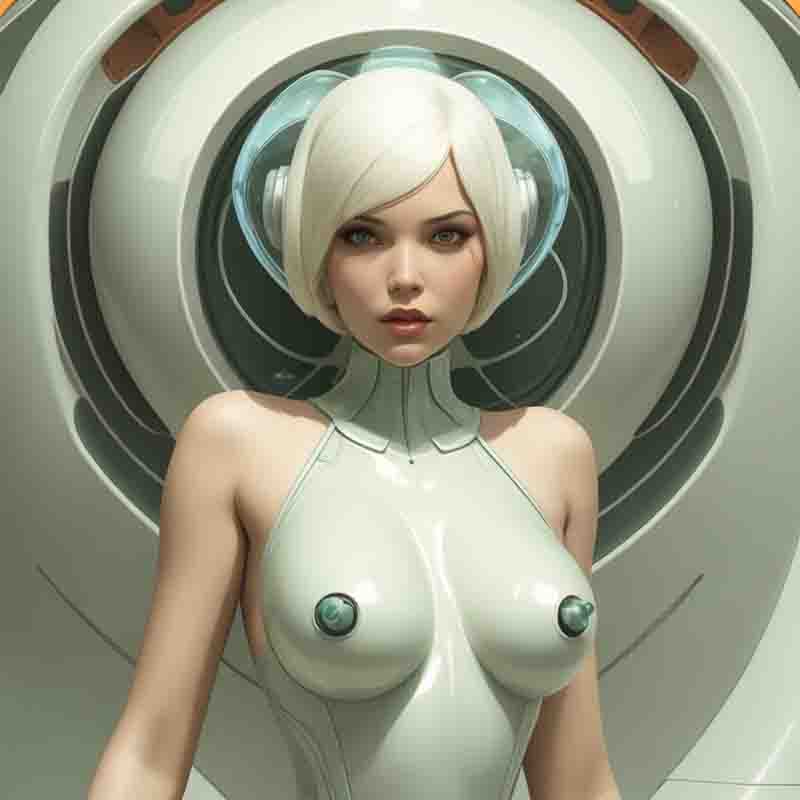
Science fiction has a multifaceted impact on society, influencing technological development, shaping cultural narratives, and contributing to public perceptions of science and the future.narratives.
From its historical roots to its contemporary manifestations, science fiction has consistently pushed the boundaries of what is possible, both in literature and on the screen.
The genre's ability to predict technological advancements, address societal issues, and inspire future generations highlights its enduring relevance.
The genre's journey is an ongoing odyssey that invites us to dream, question, and envision the limitless possibilities that lie ahead.
Science Fiction: FAQ
Are you curious about music, art, technology, fashion, lifestyle, and beer?
If so, then you need to subscribe to the free Likewolf newsletter.
100% privacy. When you sign up, we'll keep you posted.
German Loanword
Doppelgänger (/ˈdɒpəlɡɛŋər, -ɡæŋər/)
